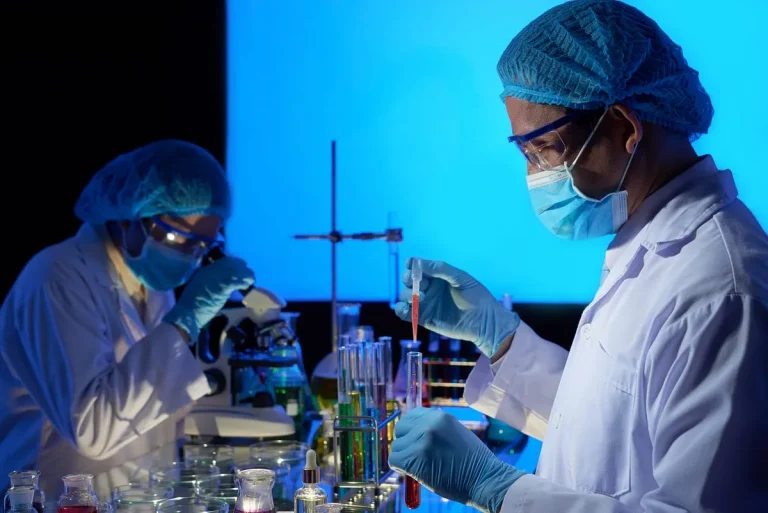Does Gpa Matter For Computer Science?
With technology transforming industries, computer science skills are in high demand. But can tech talent make up for a less-than-perfect academic record? Let’s crunch the numbers on whether GPA matters in CS.
If you’re short on time, here’s a quick answer: While GPA counts to an extent, skills and experience often outweigh grades for many CS careers. However, keeping above a 3.0 improves prospects.
In this approximately 3000 word article, we’ll look at how GPA impacts admissions, weigh it against other factors like skills and experience, provide tips to offset lower GPAs, and examine when high GPAs give a competitive edge.
The Role of GPA in College Admissions
When it comes to college admissions, one of the key factors that is often considered is the student’s Grade Point Average (GPA). GPA serves as an indicator of a student’s academic performance and is used by colleges and universities to assess an applicant’s potential for success in their chosen field of study.
While it is not the sole determining factor, GPA does play a significant role in the admissions process.
How Much GPA Matters for Undergraduate Programs
GPA holds considerable importance when it comes to undergraduate programs, including computer science. Most colleges and universities have a minimum GPA requirement for admission, and meeting this requirement is often a prerequisite for consideration.
Additionally, a high GPA can strengthen an applicant’s chances of getting accepted into competitive programs or receiving scholarships. Therefore, it is crucial for students aspiring to pursue computer science at the undergraduate level to maintain a good GPA throughout high school.
However, it is important to note that GPA is not the only factor that colleges consider. Admissions committees also take into account other aspects such as standardized test scores, extracurricular activities, letters of recommendation, and personal statements.
These components provide a more holistic view of the applicant’s abilities and potential, allowing colleges to make well-rounded admissions decisions.
GPA Importance for Master’s and PhD Programs
When it comes to graduate programs, such as master’s and PhD programs, the importance of GPA can vary. While a strong undergraduate GPA is generally beneficial, many graduate programs also prioritize research experience, letters of recommendation, and personal statements.
These factors are often given equal or even greater weight than GPA.
However, a high GPA can still be advantageous for securing admission into competitive graduate programs. It can demonstrate a student’s ability to excel academically and handle the rigorous coursework that comes with advanced study in computer science.
Additionally, some scholarships and funding opportunities may have GPA requirements, making a strong academic record even more valuable.
Skills and Experience vs. Grades in the Job Market
Do Tech Companies Value GPAs?
When it comes to landing a job in the computer science field, the question of whether GPA matters often arises. Tech companies are known for valuing skills and experience over academic grades. While a high GPA can be impressive, it is not the sole determining factor for employers.
Employers in the tech industry understand that computer science is a field that requires practical skills and hands-on experience.
Many tech companies prioritize candidates who can demonstrate their abilities through projects, internships, and relevant work experience. These experiences allow job seekers to showcase their problem-solving skills, ability to work in a team, and creativity.
However, this doesn’t mean that GPA is completely irrelevant. Some companies may still consider a candidate’s GPA as part of the overall evaluation process, especially for entry-level positions.
It’s important to note that while GPA may not be the top priority for tech companies, it can still serve as a differentiating factor when candidates have similar skills and experience. In these cases, a higher GPA may give a candidate a slight advantage over others.
Tips to Offset Lower GPAs
If you have a lower GPA and are concerned about its impact on your job prospects, there are several strategies you can employ to offset it:
- Showcase your projects and portfolios: Instead of solely focusing on your GPA, highlight your personal projects and portfolios that demonstrate your technical skills and creativity. Employers are often more interested in seeing what you can do rather than just your grades.
- Gain relevant work experience: Internships, part-time jobs, and volunteering in the computer science field can help you gain valuable hands-on experience. This practical experience can help compensate for a lower GPA and demonstrate your ability to apply your knowledge in real-world scenarios.
- Obtain certifications and attend workshops: Participating in certifications and attending workshops can showcase your commitment to continuous learning and staying updated with the latest industry trends. These additional qualifications can help strengthen your resume and compensate for a lower GPA.
- Network and make connections: Building a strong professional network can open doors to opportunities even if your GPA is not as high as you would like. Attend industry events, join professional organizations, and connect with professionals in the field to expand your network and increase your chances of finding job opportunities.
Remember, while GPA can be a factor in the hiring process, it is not the only factor that employers consider. By focusing on developing your skills, gaining relevant experience, and showcasing your abilities through projects and practical work, you can overcome any potential limitations that a lower GPA may present.
When Higher GPAs Make a Difference
While GPA is not the sole determinant of success in the field of Computer Science, it can certainly have an impact on various aspects of one’s career. In this article, we will explore three areas where a higher GPA can make a difference: graduate school admissions, scholarships and financial aid, and certain companies and roles.
Graduate School Admissions
When it comes to pursuing advanced degrees in Computer Science, a higher GPA can greatly enhance your chances of being accepted into a reputable graduate program. Admissions committees often use GPA as a measure of an applicant’s academic ability and dedication.
A strong GPA demonstrates your commitment to your studies and can be seen as an indicator of your potential for success in a rigorous academic environment.
Many top-tier graduate programs have a minimum GPA requirement, and some may even have a GPA cutoff for consideration. Additionally, a higher GPA can also make you a more competitive applicant when it comes to securing research assistantships or fellowships, which can provide valuable funding and research opportunities during your graduate studies.
Scholarships and Financial Aid
Having a higher GPA can also open doors to various scholarships and financial aid opportunities. Many organizations and institutions offer scholarships specifically for students studying Computer Science, and a strong academic record can make you a more attractive candidate for these awards.
Scholarships can provide financial assistance that can help offset the costs of tuition, books, and other educational expenses.
Furthermore, some universities offer merit-based financial aid packages that take into account a student’s academic achievements, including their GPA. These packages can include grants, work-study opportunities, and reduced tuition rates.
By maintaining a high GPA, you increase your chances of receiving such financial aid, making your education more affordable and accessible.
Certain Companies and Roles
While it is true that many companies in the tech industry prioritize practical skills and experience over GPA, there are still certain companies and roles where a higher GPA can be advantageous. Some companies, especially those in highly competitive sectors such as finance or consulting, may require a minimum GPA for entry-level positions.
Additionally, certain roles within the field of Computer Science, such as research or academia, may place a greater emphasis on academic achievements. A higher GPA can demonstrate your ability to handle complex concepts and problem-solving, which are essential skills in these roles.
It is important to note that while GPA is a factor in these areas, it is not the sole determinant of success. Practical skills, experience, and personal projects also play a significant role in shaping a successful career in Computer Science.
However, maintaining a high GPA can certainly open doors and provide additional opportunities for growth and advancement in the field.
Strategies for Computer Science Students with Lower GPAs
Highlight Projects and Skills on Your Resume
While GPA is important for some employers, it is not the sole factor in determining your worth as a computer science professional. One effective strategy for students with lower GPAs is to focus on highlighting their projects and skills on their resume.
Employers are often more interested in practical experience and tangible results. Include any personal coding projects, open-source contributions, or internships where you have applied your skills. By showcasing your abilities and demonstrating your passion for computer science, you can compensate for a lower GPA.
Ace the Technical Interview
Another way to overcome a lower GPA is to excel in the technical interview. Many companies prioritize technical skills and problem-solving abilities during the interview process. Prepare for technical interviews by practicing coding problems, algorithms, and data structures.
Utilize online resources, coding platforms, and mock interviews to refine your skills. Additionally, be sure to showcase your ability to work well in a team, communicate effectively, and think critically.
A strong performance in the technical interview can help you stand out from other candidates and compensate for a lower GPA.
Consider Alternate Career Pathways
If you have a lower GPA, it may be worth considering alternate career pathways within the computer science field. While some companies have strict GPA cutoffs, many others place more emphasis on experience, certifications, and specialized skills.
Explore opportunities in areas such as web development, data analysis, cybersecurity, or software testing. These fields often value practical skills and industry certifications over academic performance.
By pursuing alternative pathways, you can still have a successful career in computer science regardless of your GPA.
Maintaining a Solid GPA as a Computer Science Major
As a computer science major, maintaining a solid GPA is crucial for your academic and professional success. While GPA is not the sole determining factor for your future career prospects, it does play a significant role in opening doors to internships, scholarships, and job opportunities.
Here are some tips to help you maintain a strong GPA throughout your computer science journey:
Manage Your Time and Workload
Time management is the key to success in any field, and computer science is no exception. With demanding coursework and complex coding projects, it’s important to stay organized and plan your study schedule effectively.
Break down your tasks into manageable chunks and create a study calendar to ensure you stay on track. Prioritize your assignments and allocate sufficient time to each, so you can avoid last-minute cramming and produce quality work.
Leverage Campus Academic Resources
Universities often provide a range of academic resources to support students in their studies. Take advantage of these resources to enhance your understanding of computer science concepts and improve your grades.
Attend professor’s office hours, seek help from teaching assistants, and participate in study groups. Additionally, many universities offer tutoring services and academic workshops specifically tailored to computer science students.
Exploring these resources can provide you with additional guidance and support to excel in your coursework.
Build a Support Network
Building a strong support network can greatly contribute to your academic success as a computer science major. Connect with fellow students who share similar academic goals and interests. Join computer science clubs or organizations on campus to engage with like-minded individuals who can offer support and guidance.
Collaborating with peers can provide valuable insights, foster a sense of camaraderie, and help you navigate through challenging courses. Additionally, forming relationships with professors and mentors in the field can provide you with valuable advice and mentorship opportunities.
Remember, maintaining a solid GPA in computer science is not just about the numbers; it reflects your dedication, commitment, and ability to grasp complex concepts. By managing your time effectively, utilizing campus resources, and building a strong support network, you’ll be well on your way to achieving academic success in the field of computer science.
Conclusion
While skills and experience tend to outweigh GPA in technical roles, academic performance indicates foundational CS abilities. Striking a balance between maintaining solid grades and developing key hard and soft skills produces the most well-rounded computer science profile.
Rather than stressing over grades alone, emphasize showcase-worthy projects, cultivate on-the-job abilities, and focus on effectively communicating your passion for technology and problem-solving.







